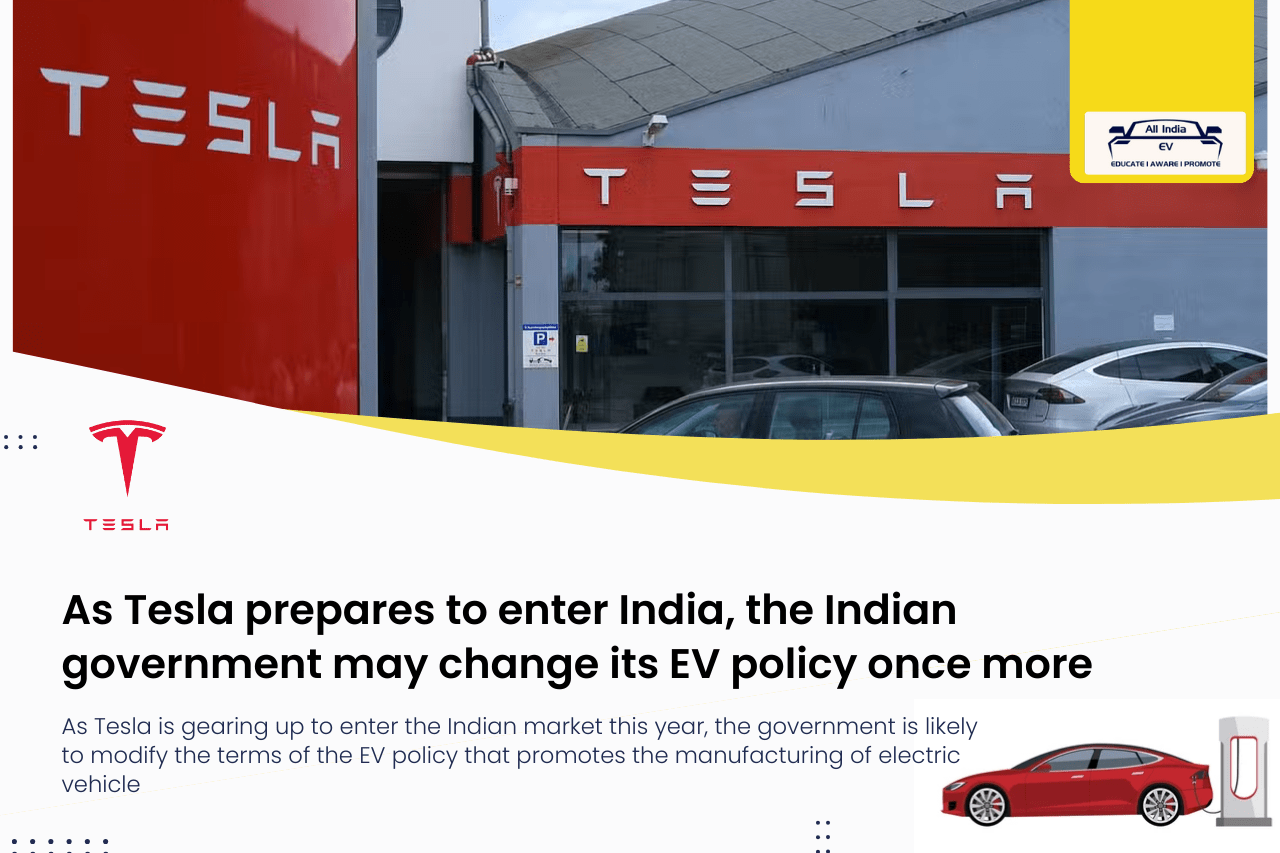
Indian Govt May Tweak EV Policy Again as Tesla Gears Up for India Entry
India’s electric vehicle (EV) market is at a turning point as global EV giant Tesla inches closer to its much-anticipated entry. In response, the Indian government is reportedly considering another revision to its EV policy to accommodate Tesla and other foreign manufacturers. The proposed policy changes aim to attract investment, encourage local production, and accelerate the transition to electric mobility.
- Indian Govt May Tweak EV Policy Again as Tesla Gears Up for India Entry
- Proposed Policy Changes
- 1. Lower Import Duties on EVs
- 2. Mandatory Investment Commitment
- 3. Faster Approvals & Streamlined Regulations
- Tesla’s India Strategy
- 1. Product Lineup for India
- 2. Setting Up a Charging Infrastructure
- 3. Retail & Service Centers
- Impact on India’s EV Market
- 1. Boost to Local Manufacturing
- 2. Competitive Pressure on Domestic EV Players
- 3. Increased EV Adoption
- Challenges & Roadblocks
- Conclusion
According to recent reports, the government is likely to introduce relaxed conditions for global EV makers, including reduced import duties and mandatory investment commitments. If approved, these changes could pave the way for Tesla to begin operations in India by 2025.
Proposed Policy Changes
The Indian government has been in talks with Tesla for several months regarding policy modifications that would make it easier for the company to enter the market. The key aspects of the proposed EV policy include:
1. Lower Import Duties on EVs
Currently, India imposes steep import duties on completely built-up (CBU) electric vehicles:
- 100% duty on EVs priced above $40,000
- 70% duty on EVs priced below $40,000
Tesla has been advocating for a reduction in these import tariffs to make its vehicles more affordable in India. The government is now considering a concessionary duty of 15-30% for automakers that commit to investing in local manufacturing within a set time frame. This is expected to facilitate Tesla’s initial entry through imports before it establishes a domestic production plant.
2. Mandatory Investment Commitment
The government is likely to require automakers to achieve a minimum annual revenue of ₹2,500 crore ($300 million) by the second year of operations. This condition would ensure that only serious players with long-term plans benefit from the policy changes.
Tesla has reportedly agreed to invest up to $2-3 billion in India, with plans to set up a manufacturing facility in the country. The company is exploring locations in Maharashtra, Gujarat, and Tamil Nadu, where major automotive hubs exist.
3. Faster Approvals & Streamlined Regulations
The revised policy will expedite the approval process for foreign EV makers. Applications for entry under the new policy are expected to open in mid-March 2025, with government approvals targeted for August 2025. This timeline could allow Tesla to start importing its models by the end of 2025 or early 2026.
Tesla’s India Strategy
Tesla’s India entry has been a topic of discussion since 2021, but high import duties and infrastructure challenges delayed the company’s plans. With the government now reconsidering its EV policy, Tesla appears ready to move forward.
1. Product Lineup for India
Tesla is expected to launch models that cater to India’s price-sensitive market. The first wave of imports is likely to include:
- Tesla Model 3 (Expected price: ₹50-55 lakh)
- Tesla Model Y (Expected price: ₹60-65 lakh)
If Tesla establishes a local manufacturing plant, it could produce a more affordable model priced around ₹20-25 lakh, making it competitive with domestic EVs like the Tata Nexon EV and MG ZS EV.
2. Setting Up a Charging Infrastructure
One of Tesla’s biggest challenges in India will be the charging infrastructure. The company is reportedly in talks with Indian energy firms such as Reliance, Tata Power, and Adani Energy to set up Supercharger networks in major cities like Delhi, Mumbai, Bengaluru, and Hyderabad.
3. Retail & Service Centers
Tesla has started hiring for key positions in India and is scouting locations for showrooms and service centers in Mumbai and New Delhi. The company is also exploring a direct-to-customer sales model, similar to its approach in other markets.
Impact on India’s EV Market
Tesla’s arrival could significantly impact India’s EV ecosystem in several ways:
1. Boost to Local Manufacturing
Tesla’s investment could accelerate India’s goal of becoming an EV manufacturing hub. Other global automakers, such as BYD, Hyundai, and Volkswagen, are also increasing their focus on the Indian EV market.
2. Competitive Pressure on Domestic EV Players
Indian automakers like Tata Motors, Mahindra, and Ola Electric may need to improve their technology, pricing, and charging infrastructure to compete with Tesla.
3. Increased EV Adoption
With Tesla’s brand recognition and superior technology, its entry could encourage more consumers to switch to electric vehicles, driving overall EV adoption in India.
Challenges & Roadblocks
While Tesla’s entry is promising, several challenges remain:
- High production costs: India still lacks a mature EV supply chain, leading to higher costs.
- Charging infrastructure: A robust Supercharger network needs to be built for Tesla owners.
- Regulatory hurdles: Policy implementation delays and red tape could slow down progress.
Conclusion
Tesla’s India debut has been long-awaited, and the government’s willingness to tweak its EV policy signals a major shift in India’s approach to electric mobility. If the revised policy is implemented successfully, it could mark a turning point for India’s EV industry, attracting billions in investment and making electric vehicles more mainstream.
With Tesla’s entry expected by late 2025 or early 2026, the next few months will be crucial in determining how the company navigates India’s unique market dynamics. If everything goes as planned, India could emerge as one of Tesla’s largest global markets in the coming decade.









